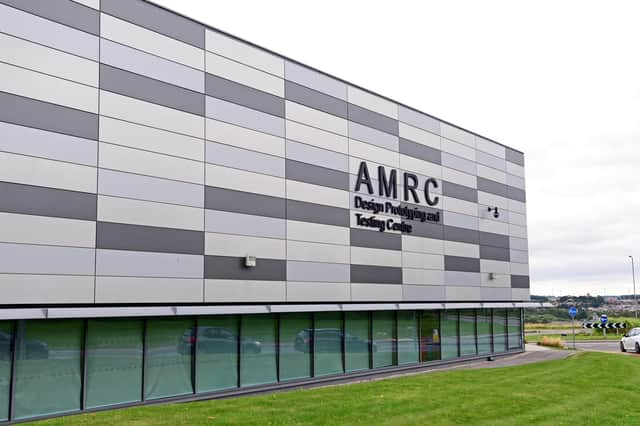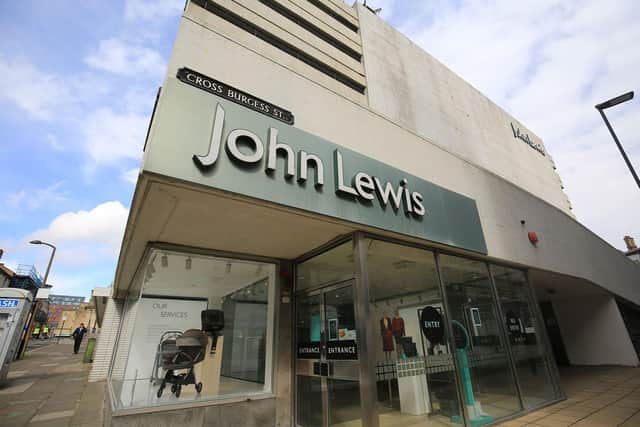Why business leader says a change in Sheffield's council structure would 'relegate city to provincial backwaters'


I know what the history of Cole Brothers means to people in this city. While Sheffield’s regeneration is on the up – thanks in large part to independent businesses – it is still crucial that there is a destination to draw people to the heart of the city.
It comes as the council’s future is already being called into question. In May, voters will be asked to choose between keeping the current Cabinet and Leader council model or going back to a committee system.
Advertisement
Hide AdAdvertisement
Hide AdFor those of us working to build a prosperous, productive Northern Powerhouse, it is a real worry. We need to put Sheffield on the global map - where it deserves to be.


A committee system would cripple Sheffield politically and economically, weakening its ability to make strategic, long-term decisions and diluting its capacity to affect real change for local people. Such a system wouldn’t stand a chance in competing for public and private investment against the effective leadership models in Sheffield’s neighbours, Manchester and Leeds.
As we start to build a recovery, pressure is growing to take a more ambitious stance towards Net Zero while securing economic growth, through local successes such as the AMRC at the Advanced Manufacturing Park.
A committee model simply isn’t up to the task.
We all watched the notorious Handforth Parish Council meeting. We all laughed at the petty infighting and ridiculous political game-playing. But this is exactly what awaits Sheffield, should a committee replace the current system.


Advertisement
Hide AdAdvertisement
Hide AdI worry that businesses will not choose to invest in a city where they’re unsure of the future direction of travel. Nothing undermines confidence more quickly than uncertainty and a rocky political system could trigger a mass exodus in private investment leaving the city.
Jobs, investment, livelihoods are at all at risk should voters choose this moment – as we make the first steps towards a COVID recovery – to overhaul the council and throw Sheffield’s local government into confusion and chaos.
Before the adoption of the Localism Act in 2011, councils could only choose between “leader and cabinet” and “elected mayor and cabinet” models. Since 2012, however, local authorities have been able to opt for a committee system.
Great Northerner and former leader of Newcastle Council Lord Beecham warned against such a system, cautioning it would usher in a wave of nimbyism, fragmented strategy and ineffective governance that would keep power firmly in the hands of central government.


Advertisement
Hide AdAdvertisement
Hide AdSince then, just a handful of places have chosen to revert to the committee model. They are, by and large, small, provincial backwaters, focused on small, provincial issues.
Bin collection is top of the agenda at committee-led Basildon Council. While undoubtedly an issue that requires attention, our northern cities need to address the more pressing issues that hold back economic growth, such as this newspaper’s recent campaign to ensure every child had access to technology to learn from home.
Sheffield deserves better. The city has huge potential: a young, ambitious workforce as well as vast expertise in manufacturing, green energy and technology.
There is a real opportunity to capitalise on these assets through continued investment in regeneration, including in skills, R&D and redevelopment of the city centre. It could unlock billions in growth, turning Sheffield and the wider region into a hugely powerful economic engine and creating thousands of well-paid jobs for local communities.
Advertisement
Hide AdAdvertisement
Hide AdWe’re already seeing huge strides being taken by effective and empowered local leaders such as Dan Jarvis as Metro Mayor in Sheffield City Region. As well as plans for an £860m Renewal Fund, he has the necessary powers to follow in footsteps of Greater Manchester by taking control over the bus network.
A strong leader in Sheffield means a strong voice for the city within the combined authority, driving growth across the wider city region.
A committee system would undermine the case for devolution here in the North, putting the brakes on locally-led growth plans. It would paralyse Sheffield’s ambition, turning its focus inwards and lowering the bar for future regeneration.
Real economic success comes from looking at the bigger picture, positioning a city in the wider national context and raising its standing on the global stage – not from focussing on a narrow set of only hyper-local issues better addressed by the community itself.
Advertisement
Hide AdAdvertisement
Hide AdThe Northern Powerhouse will be built by maximising the economic opportunities of our great northern towns and cities, closely linking them through efficient transport links and digital infrastructure to connect people to jobs, and businesses to talent.
That means building HS2 both sides of the Pennines - as we were promised – linking Sheffield into an integrated high speed rail network that stretches north to south, east to west.
It means closing the huge chasm in education between long-term disadvantaged children and their peers, widening their horizon of career opportunities and creating a skilled, capable Northern workforce which will act as a magnet for businesses looking to invest.
These are pan-Northern priorities, aimed at addressing the productivity gap between North and South in order to attract investment from across the UK and beyond.
Advertisement
Hide AdAdvertisement
Hide AdThis is a moment of reckoning for the city. Will Sheffield resign itself to an economic and political wilderness, while its northern neighbours grow in strength and influence?
Or will it state its case as a serious city power that can be trusted to build a better future for local people?